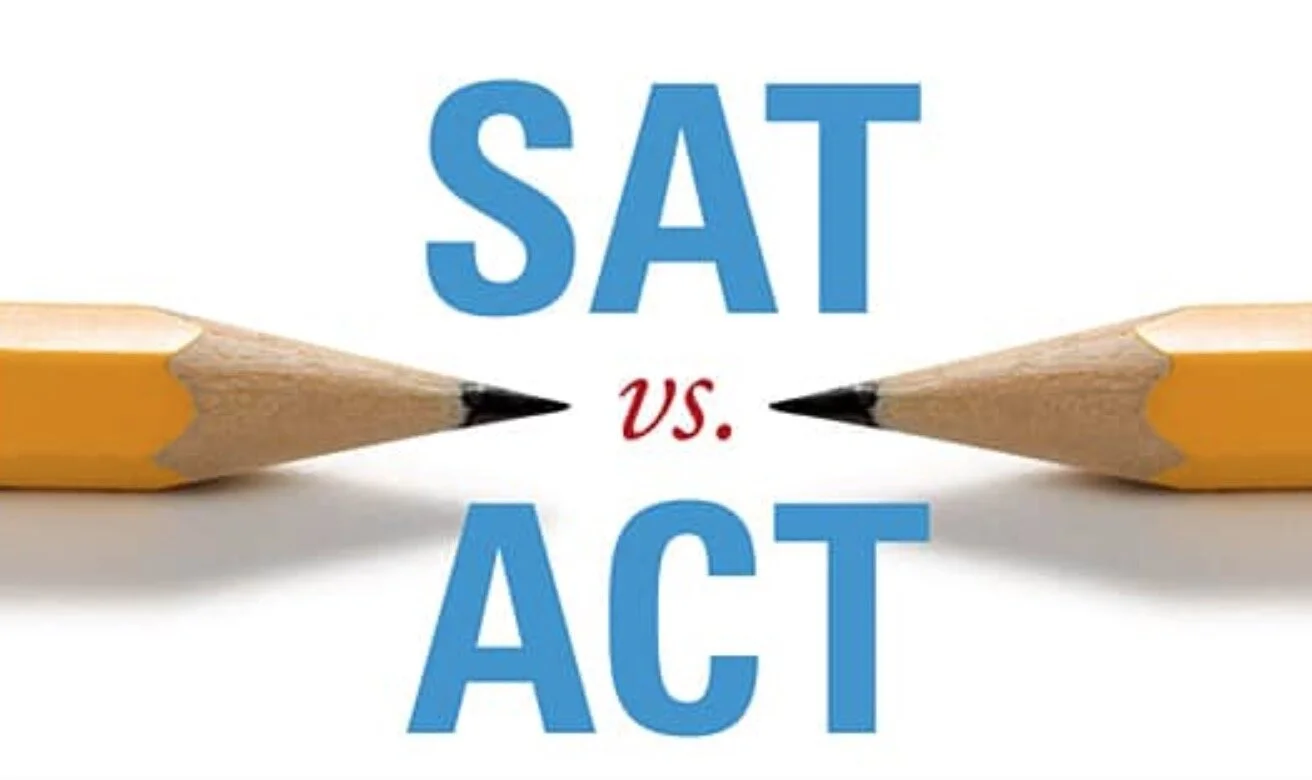ACT Postpones Online Testing for Fall ACT National Testing
Due to COVID-19 disruptions and required social distancing guidelines in test centers, ACT has made the decision to postpone the planned launch of online testing for national ACT test-takers. ACT is focused on adding additional testing capacity for students in need of full ACT scores for admission and scholarship applications. This decision will ensure ACT can build additional capacity for fall testing at national test centers and allow test centers to focus on providing a successful paper administration of the ACT test.
ACT's continued focus for fall testing is to expand test center capacity for students in need of scores from the full ACT test, while reducing complexity in testing for its customers, test center network, and education advocates and stakeholders.
“We were technologically on track—as in 26 miles into a 26.2 mile marathon—to launch online testing at national test centers this fall, but the world has changed, and so too must our plans and timeframe for launching this enhancement,” said ACT CEO Janet Godwin. “We’re going to focus our efforts on doing what we we’ve done well for 60 years and implementing what we can, when we can, safely and with confidence. That said, we will continue to build out this capability from a technology standpoint so we can be ready to deliver it when the market is ready.”
Additional Fall National Testing Updates
ACT recently added new test dates to give students more opportunities to take the ACT test this fall, and still plans to offer a remote proctoring solution, allowing students to take the test online, at home, or at other safe and convenient locations in late fall/early winter. This option will improve students’ test-taking experience and increase their opportunities for college admissions and scholarships, while setting the stage for the future release of section retesting and online testing.
Beginning in September 2020, ACT will offer the option to report a superscore for students who have taken the ACT test more than once, and will offer four fee waivers to qualifying students (double the number previously offered) to take the ACT test for free.
At this time, ACT plans to launch online testing in 2021 but will continue to monitor the impacts of COVID-19 on test center capacity to prioritize safe and equitable access to testing.
States and districts will still have the option of offering online testing as part of their in-school testing programs. Students who test outside of the U.S. will continue to take the ACT as a computer-based test.
Students can sign up to be the first to know when registration for the fall test dates opens.
_________________________________________________________________________________
CONTACT US FOR A FREE PRACTICE TEST PACKET AND DIAGNOSTIC REPORT (VIEW SAMPLE STUDENT REPORTS: ACT, SAT, SSAT, ISEE, AND HSPT).
Vint Hill Educational Services offers mock tests for the ACT and SAT. These are taken in a group setting to simulate the testing environment. For the ACT and SAT, we will review the scores to see which test the student is scoring higher on. Since all colleges and universities accept both tests, it's beneficial to know if your child is scoring higher on the ACT or SAT. Check out our ACT versus SAT comparison chart for test differences. Sometimes the difference is like night and day, and for others, it may be a hairline higher on one versus the other. The student won't know which test is better, unless the individual takes one of each. We'll use our score concordance chart in order to make a test recommendation.
2020-2021 MOCK ACT/SAT TEST DATES
AS OF AUGUST 2020, WE WILL BE PROCTORING TESTS VIRTUALLY ON SATURDAY MORNINGS AT 9:00 AM. UPON REGISTERING FOR A VIRTUAL MOCK TEST, YOU’LL RECEIVE A TEST PACKET VIA USPS MAIL.
PACKET INCLUDES:
ACT/SAT ANSWER SHEET
ACT/SAT TEST BOOKLET
*ACT/SAT ESSAY PROMPT
FOUR PAGES OF LINED PAPER
TEST INSTRUCTIONS
*THE ACT/SAT ESSAY IS OPTIONAL. STUDENTS INTERESTED IN TAKING THE ACT/SAT ESSAY WILL CONTINUE ON WITH THE TEST AFTER THE FINAL MULTIPLE-CHOICE SECTION (ACT SCIENCE OR SAT MATH).
PLEASE SIGN UP NO LATER THAN MONDAY DURING THE WEEK OF THE MOCK TEST. BE SURE TO INCLUDE YOUR ADDRESS DURING REGISTRATION, SO THAT WE CAN MAIL YOU A TESTING PACKET.
ALL ACT/SAT TESTS WILL BE PROCTORED VIRTUALLY THROUGH LESSONSPACE. THE DAY BEFORE EACH TEST, STUDENTS WILL RECEIVE AN EMAILED LINK TO JOIN THE VIRTUALLY PROCTORED TEST. THE TEST INSTRUCTIONS CAN BE USED SHOULD A STUDENT LOSE CONNECTION TO THE TESTING LOBBY.
ACT
Register for a mock ACT by clicking on a specific test date below.
Mock ACT test dates:
August 15, 2020
September 26, 2020
October 24, 2020
November 21, 2020
December 5, 2020
January 30, 2021
February 27, 2021
March 27, 2021
April 10, 2021
May 8, 2021
SAT
Register for a mock SAT by clicking on a specific test date below. :
Mock SAT test dates:
August 29, 2020
September 12, 2020
October 10, 2020
November 7, 2020
December 19, 2020
January 16, 2021
February 13, 2021
March 13, 2021
April 24, 2021
May 22, 2021
We also offer one-to-one mock testing at our offices. This consists of a full-length practice test for your child. Tests include: ACT, SAT, PSAT, SSAT, ISEE, HSPT, and SAT Subject Tests. We provide the test booklet, essay booklet, answer sheet, testing timer, calculator, and pencils.
We can send parents a practice test as well, to administer to their student in-home. We will send out a free practice test packet along with proctoring instructions. Parents must send the answer sheet back to us via email or mail.
Mock ACT and SAT (Group Testing)
TESTS INCLUDE
ACT and SAT
$25 Registration Fee (1 Mock Test: ACT or SAT) Includes test scores comparison
Mock testing for the ACT and SAT, held in a group setting. Parents will receive a diagnostic score report and phone consultation. View sample student score reports: ACT and SAT.
For the ACT and SAT, we will compare scores in order to determine which test is better for the student to take. See virtual mock test dates above for the 2020-2021 school year.
In-Office or In-Home Testing (One-To-One)
TESTS INCLUDE
ACT, SAT, PSAT, SSAT, ISEE, HSPT and SAT Subject Tests
$125 Standard Test (In-office)
$175 Special Accommodations (In-office)
FREE Parent Administration (In-home)
One-to-one testing at our offices or in-home testing proctored by a parent. A perfect fit for students that need to get acclimated to the test format, structure, and timing. This can help to relieve nervousness and anxiety. Parents have the option of administering the test to their child for free. They can also choose to drop their student off at our offices and we will administer the test to the student. Parents will receive a diagnostic score report from our testing software. View sample reports: ACT, SAT, SSAT, ISEE, and HSPT. An individual test scores comparison chart is provided for the ACT and SAT.
















